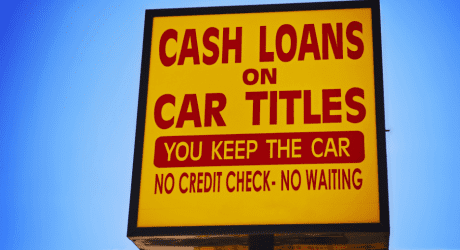Buying a first home is a dream come true for many. While the idea of getting your first home can be exciting, the process of it can be overwhelming. There are usually a host of things to figure out, amongst which is finding the best way to finance your home.
As a first-time homebuyer, there are lots of financing options you could take advantage of. Depending on the situation of your finances, you could opt for a traditional loan structure which often involves a 20 percent or higher down payment. You could also consider some nontraditional financing options with little to no down payment requirements.
Read on, and you’d learn about your loan options and how to secure a favorable loan.
Tips to Securing a Favorable Loan

To be authorized for a mortgage, you’ll need to fulfill various requirements depending on the type of loan you’re applying for. But in general, the tips below would help you get a better deal on your loan terms.
Significant Down Payment
For conventional loans, making a substantial down payment is something that will help you get the most favorable interest rates possible. Paying above 20 percent on your down payment could prevent you from having to get PMI (private mortgage insurance)
Good Debt-To-Income Ratio
Lenders will evaluate your debt-to-income ratio to determine your ability to manage monthly installments. To know your DTI, divide your recurring monthly debt by your total monthly income.
A high DTI could negatively affect your ability to get a favorable interest from your lender. 36 percent or lower is the preferable DTI ratio but you’d still qualify for some loans up until a maximum limit of 43 percent.
Good Credit Score
Banks or lenders will set your loan terms according to their assessment of your credit score. A credit score lower than 740 could attract higher interest rates and additional fees to keep the interest rate down.
You can easily obtain your credit score from credit reporting agencies like Experian, Equifax, and TransUnion.
To maintain a good credit score – always make payments as at when due and deal with discrepancies and errors as soon as possible.
Adjustable-Rate Mortgage
With a fixed-rate mortgage, you’ll be able to lock in a stable interest rate for the duration of your loan.
This is different from the adjustable-rate mortgage, where you can lock into a lower interest rate for a specified period. After which it begins to fluctuate till the end of your loan term. ARM is advisable if you plan on selling the house after a short time, if not you could end up paying higher rates.
Loan Types

Conventional Loans
A conventional loan is any type of housing loan that’s not secured or offered by a government agency. Conventional loans are available through private sectors such as banks, mortgage companies, and credit unions.
However, government-sponsored enterprises like Fannie Mae ( Federal National Mortgage Association) and Freddie Mac (Federal Home Loan Mortgage Corporation) guarantee conventional mortgages. These are known as conforming loans.
Conventional loans tend to have stricter lending requirements because they are not guaranteed by the federal government.
Loans with Little to No Down Payment – Government Sponsored
- FHA – Federal Housing Administration gives out several mortgage loan schemes for Americans. This loan requires a considerate down payment as low as 3.5% and they’re easier to qualify for than conventional loans. Though, borrowers that use this option are required to pay mortgage insurance payments. This is to protect lenders and its included in their monthly mortgage payments
- VA Loans – VA loans are guaranteed by the U.S Department of Veterans Affairs. VA loans come with favorable conditions – usually with no down payments and are also easier to qualify for than conventional loans. You’ll need to confirm your eligibility with the VA before the loan application. The VA then issues a certificate of eligibility with which you could apply for a loan from a qualified lender.
- USDA Loans – the U.S Department of Agriculture offers loans to people who meet certain requirements especially in rural areas and some suburban areas. This loan doesn’t require a down payment as well.
Other Financing Options
Seller Financing
Seller financing also known as owner financing is when the seller is in charge of the mortgage rather than the big loan organizations out there. When you sign your mortgage directly with the owner you get benefits like Little to no down payment and no closing cost. Though you could end up paying at a higher interest rate than you would with a bank loan
Crowdfunding
The idea behind crowdfunding is to get people to make micro-donations to a cause they believe in.
Sites like GoFundMe have offered people a platform to band together and support charitable deeds and social causes. And in recent years, there have been a couple of platforms that have cropped up to specifically help you get the funds you need to make a down payment. Platforms such as HomeFundit, Feather the Nest, Patch of Land, and so on.
Hard Money
Hard money refers to the money you borrow from professional private lenders. This is a good option for someone in need of quick money because they have less stringent requirements than traditional lenders. Borrowers are not vetted nor do they require a particularly high credit score.
Instead, hard money lenders will analyze your scope of work, rehab blueprint, and ARV to determine loan terms. Hard money loans have generally high rates and are short-term. Therefore, you should employ this option with an exit strategy in mind.
Getting Funds for Your First Home
The amount of funds you’d require to get that very first home you’ve been dreaming of is dependent on a couple of factors like your budget ( to make down payments), your financial history, and the house itself (how expensive it is).
With this in mind and considering all that has been discussed above, you should be able to decide which loan or financing option would be best suited for you. This is usually a long-term commitment, so remember to cut your coat according to your size.
Read Also:




























